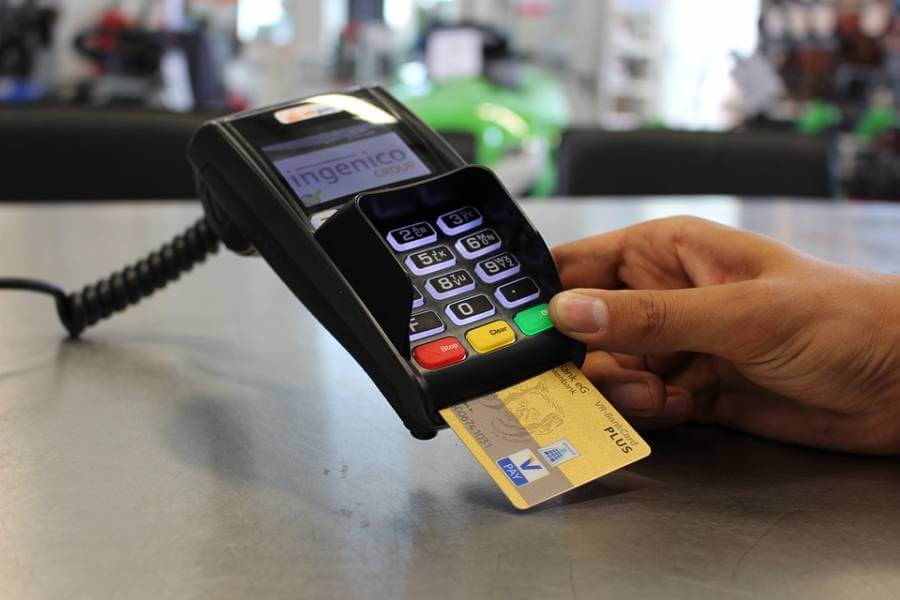If you’re starting a new business and aren’t sure about how credit cards work or already have a business but don’t accept credit cards, it’s time to learn more about payment processing. After all, we’re slowly turning into a cashless society, and payments made via credit card will grow to $1.82 trillion in 2024.
Since your revenue is directly affected by payment processing, you need to know how to choose the right credit card processing company for your business and be aware of some of the basics, including credit card processing reviews. That’s why we created this guide that will help you get a better understanding of these processes.

Security
One of the biggest concerns businesses and consumers have regarding payment processing is how secure it is. It’s important to understand the differences between a card network vs payment processor. Data breaches can happen, but luckily, they’re extremely rare and most payment processing companies work on providing a secure platform for their users.
Whichever payment processor you choose, it needs to have the following:
- PCI Compliance. There are numerous requirements including a good information security policy and a strong firewall that ensure a processor follows The Payment Card Industry Data Security Standard.
- EMV Compliance. Thanks to EMV chip card technology, payment processing companies have a ten-step process that comes with end-to-end encryption that almost eliminates the possibility of counterfeiting.
- Tokenization. This technology replaces the data from a customer’s card with randomly generated characters, also known as a token.
To make sure you’re completely secure, you can use bulk WHOIS lookup that provides you with domain ownership information. A lot of payment processors use this technology to detect transaction fraud.
Fees
This is something nobody likes to think about, but you need to accept that you’ll encounter some fees when using your payment processor. Even though it may seem like a lot at first, if you use your processor often and run a profitable business, the fees won’t put a big dent into your revenue.
These are the ten fees you need to be aware of:
- Start-up/annual fee;
- Credit card processing equipment lease charge;
- Address verification fee;
- Minimum monthly fee;
- Monthly statement fee;
- Transaction fee;
- Chargeback fees;
- Discount rate;
- Gateway fee (if you have opened an internet merchant account);
- Termination fees.
Reliability
Everyone who has ever used a payment processor has wondered how reliable it is. While rare, some issues could occur when the money is being transferred from your merchant account to your business bank account that would prevent the processor from withholding your funds.
Most of the time, this happens because of security concerns and your payment processing provider can withhold your funds in the following scenarios:
- Suspected fraud or chargeback. If the provider suspects the transaction was fraudulent or the customer disputes the charge, you won’t see the money in your business account until the dispute is settled.
- Rolling reserve. Payment processor providers have a system in check that protects their company called a rolling reserve. It entails holding a percentage of your earnings as a guarantee that you will pay your fees, and then releasing them after a few days.
- Account freeze. While this isn’t a common occurrence, a processor could determine that your business is high-risk and freeze your account so you can’t process any payments. If this issue isn’t resolved, it could lead to account termination.
Luckily, you can significantly reduce the risk of any of these issues by reading the contract your processing company offers. Pay attention to what they consider to be grounds for freezing your funds and make sure your business doesn’t fall into the category of what they consider to be high risk.
eCommerce
The world of eCommerce gets bigger every year. With 2.14 billion global digital buyers in 2021, many industries realize that eCommerce is the future of shopping. And if you’re planning on starting your own eCommerce business, you can’t do it without a payment gateway.
A payment gateway connects your website or eCommerce store with your payment processor and it transfers data to the processor every time a customer makes a purchase on your website. Luckily, processor providers are aware of the need for a gateway and most of them offer one for an additional fee.
Before you sign a contract with a processor, make sure you check if they’re able to provide you with a payment gateway and if they have enhanced security that is needed for online transactions.
Final Thoughts
No matter if you own a brick-and-mortar store or an eCommerce business, you can’t expect to find customers without offering payment processing. Most modern consumers prefer to pay by credit card than any other method so if you don’t offer that option, you can’t hope for success in the world of business.

Founder Dinis Guarda
IntelligentHQ Your New Business Network.
IntelligentHQ is a Business network and an expert source for finance, capital markets and intelligence for thousands of global business professionals, startups, and companies.
We exist at the point of intersection between technology, social media, finance and innovation.
IntelligentHQ leverages innovation and scale of social digital technology, analytics, news, and distribution to create an unparalleled, full digital medium and social business networks spectrum.
IntelligentHQ is working hard, to become a trusted, and indispensable source of business news and analytics, within financial services and its associated supply chains and ecosystems











